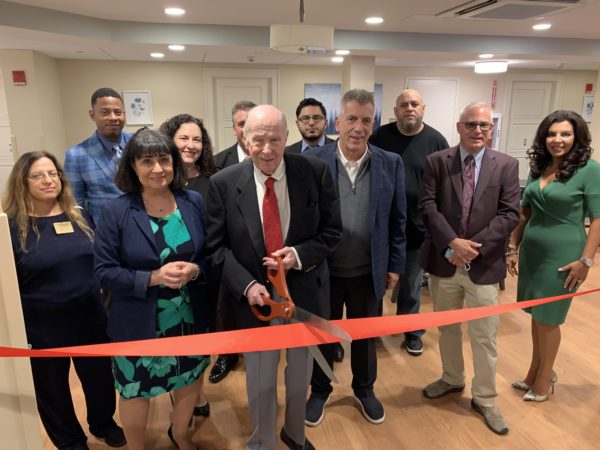United Hebrew of New Rochelle, which provides a variety of services for seniors on its 7.5-acre campus, has opened a new wing at its Willow Gardens Memory Care facility. The building originally opened in 2016 with 51 beds. Named Willow Gardens Memory Care — The Patricia and Malcolm H. Lazarus Pavilion, the facility now has an expanded capacity of 69 residents. A few of the apartments are sized to accommodate two people — couples, or siblings, for example.
“The decision to expand memory care on United Hebrew”™s campus was due, in large part, to ongoing community demand,” Rita Mabli, president and CEO of United Hebrew said. “Many families are struggling at home to care for loved ones diagnosed with Alzheimer”™s or dementia, especially with the ongoing challenges presented by the Covid-19 pandemic. We”™re meeting their needs by providing more options for supportive, specialized dementia care right here in Westchester.”

Mabli spoke at an event marking the opening of the new wing, during which Malcolm Lazarus, who provided major financial support for the expansion cut the ceremonial ribbon.
United Hebrew describes a new garden-level floor in Willow Gardens as featuring “bright, light-filled interiors and a secure, comfortable residential setting that aims to preserve independence, promote self-confidence, and enrich the lives of people affected by dementia.”
Features also include outdoor spaces, common areas including an activity room and a new state-of-the-art kitchen.
Nora O”™Brien, who is executive director for Willow Gardens and Willow Towers at United Hebrew, said, “Our residents have the freedom to explore beautiful indoor and outdoor spaces, all thoughtfully designed. The areas are all laid out to be easy to navigate, encourage social interaction, and ease the anxiety so often experienced by those with dementia.”
The Alzheimer’s Association estimates that 6.5 million Americans age 65 and older currently are living with Alzheimer”™s dementia and that in 2020 there were 410,000 cases diagnosed in New York state. Mabli said that the Hudson Valley Chapter of the Alzheimer’s Association projects that by 2025 it is expected there will be 50,000 people in the Hudson Valley diagnosed with Alzheimer’s.

















